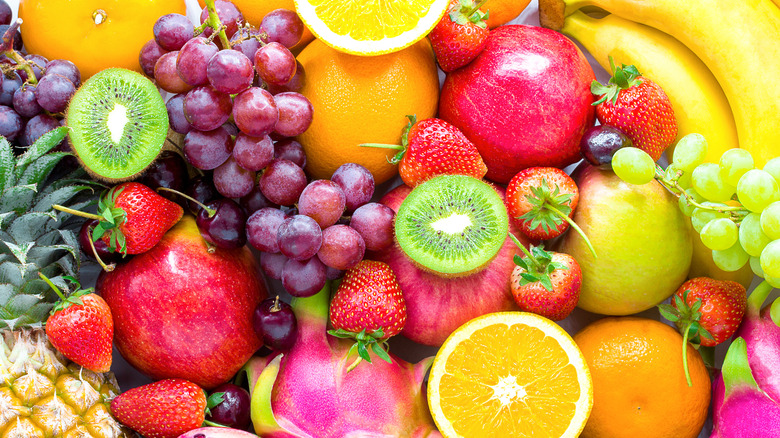What Is Fruit Fasting And Is It Healthy?
You may have already heard of fasting, which WebMD describes as abstaining from all food during a specific period of time and sticking to water, or a select set of other liquids. But fruit fasting may be a new concept to you. Livestrong explains that during a fruit fast, instead of ceasing to eat completely, fasters only eat fruit. The caveat is that the fruit consumed during a fruit fast is whole and raw, rather than dried or juiced, for example.
Those who embark on a fruit fast typically do so with weight loss intentions in mind, according to The Health Board. Due to the extreme weight loss that can occur through caloric restriction and abstinence from most food groups, fasters are advised to stick to three-day or one-week fasts. One benefit to eating only fruit during this time instead of nothing at all is that the fruit is believed to cleanse the body of toxins.
If you're considering a fruit fast, keep in mind that there is not just one way to go about it and that you may have to adjust the fast to work for you and your body. The Health Board points out that some fruit fasts only permit eating two meals a day, which consist entirely of fresh fruit. However, other food plans allow fasters to eat a serving of raw vegetables for their last meal. Blending fruit with ice for a refreshing drink during the day is also an option for some fasts.
Fruit fasting can be healthy but it isn't without risks
Now that you know what fruit fasting is, you may be wondering if it is healthy. Livestrong points out that there are several benefits to embarking on a fruit fast. Among them is deep detoxification of the entire body and weight loss. It's also worth noting that since you're still consuming food during a fruit fast, your metabolism won't come to a standstill, as it would if you opted for a water fast. A 2016 study on the effects of a three-day fruit and vegetable fast also found benefits in participants, including improvements in cardiovascular health and enhanced weight loss.
On the other hand, you should know that fruit fasting for an extended period of time will prevent your body from getting all the nutrients it needs from a well-rounded diet, which can prove detrimental to your health (via Livestrong).
The Health Board adds that fruit fasting can lead to some unpleasant side effects as well, including diarrhea, fatigue, nausea, vomiting, and a sore throat. You will also have to be mindful of the amount of physical activity you engage in during your fast as you won't be ingesting enough calories to sustain a rigorous workout.
Before starting a fruit fast, it's always a good idea to consult with your doctor to ensure that fasting is safe and healthy for you.


